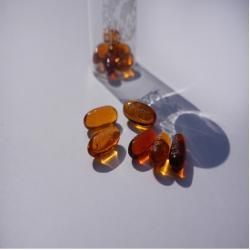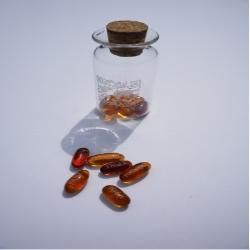12 Sep 2024
This blog was written by Laura Quinn, a Technical Tutor in Glass, and a PgCert student from the 2023/2024 cohort, as part of the Higher Education in Practice: Personal reflections on your discipline and the wider context of higher education submission.
/prod01/channel_13/uca-creative-education/media/research-and-enterprise/nikolai/Picture-1-1000X754.jpg)
As our world becomes more connected, there is a growing need that our universities support learning within a global context. With technological advancements, how they can do this is ever changing. “From transnational education to student mobility, international research connections and virtual exchanges, existing models of international education are evolving, and new practices are emerging.” (Times Higher Education, no date). With the internationalisation of the craft courses at UCA, I have started working with more students whose first language is not English. I have relied on the use of providing digital and printed learning materials, as well as making online videos where closed captions in the learner’s chosen language are available. This allows the learner to engage with the information in multiple ways (CAST, 2018), but it also allows them to access it and familiarise themselves with it in advance of the class, akin to the flipped classroom method (Advance HE, no date), leaving practical sessions to focus on the making, and on discussion. But good online and digital learning should be built on good pedagogy, rather than on technology (Garrad-Cole et. al, 2021:8), and it cannot be given as a panacea to support international learning without existing within a greater structure of support and learning.
When it comes to craft specifically, digital advancements have of course enabled new work to be made that could never have otherwise been possible, whether by removing the physical constraints of the materials, risks of making or widening participation by reducing production cost. However, Shilito warns of the loss of knowledge through direct experience of the materials:
“Eroding the essential space and time required to build up tacit and explicit knowledge through direct experience of real materials can leave so many design and applied arts students with superficial and lightweight comprehension of real-world constraints and affordances of materials and processes.” (Shillito, 2013:27)

Craft Panacea is a critical glass sculpture, not intended to provide a solution, but more to provoke conversation surrounding the use of digital learning in the internationalisation of universities. It consists of a handmade glass bottle, reminiscent of traditional apothecary bottles. With the use of digital technology, a vinyl resist was machine cut and applied to the glass, exposing areas to be engraved with a sandblaster. The resulting engraved QR code, shows a map of the world where the western view is central, and northern, however the shadow it casts onto the surface tells shows slightly altered view where it is positioned in the south, commenting on the need to decolonise our teaching, as maps indicate a particular perspective of the world and can function as biassed colonial artefacts (The Decolonial Atlas, 2024).
The global QR code casts a shadow over the scattered hand engraved glass pills, marked “craft”, “make”, “tacit”, “hand”, “knowledge” and “experience”, all things that cannot be just acquired through digital learning, unlike popping a pill. As a technical tutor supporting internationalised courses, and teaching dangerous processes such as glass blowing, the engraved pill “risk” stands out as I have experienced previously that language barriers have led to student injuries due to misunderstanding health and safety procedures.
Ingold (2023:14) discusses the idea of embodiment in making: “But the body is not a sink, nor is its knowledge a sediment. Skills are not implanted, as Wacquant contends, but grown. [...] This is the activity of a body that is not sunk into itself but rather overflows with vitality. It bubbles up and spreads itself about, not only as it makes, in gestures of the hand, but also as it speaks, in gestures of the voice.” Learning how to blow glass is absolutely an experiential and constructivist learning process and relies on the learner building up the hands on, tacit knowledge. Tacit, meaning silent, is the antithesis of explicit, but online learning lends itself to being more explicit in how the information is learned. Even within language acquisition, tacit learning takes place by the learner positioning themselves in situations where they can listen and speak in the language they are learning (Horihuela, 2013).

I do believe that online and digital learning can enhance craft teaching, widen participation and promote diversity, however it cannot be prescribed as a panacea for the practical, and high-risk learning that takes place in workshops. For this proper support for our international students is needed to ensure that they meet the English language requirements of the courses and continue to expand their use of the language so that they can engage safely, and productively in their experiential learning. So far in my research I have found resources on teaching across languages, and teaching specialised craft skills, but I have not found anything on teaching high-risk craft skills across languages. Further research on this would be beneficial when contextualising higher education craft within internationalisation strategies.
Bibliography
- Advance HE (no date) Flipped Learning. At: https://www.advance-he.ac.uk/knowledge-hub/flipped-learning-0 (Accessed 23/05/2024).
- CAST (2018). Universal Design for Learning Guidelines version 2.2. At: https://udlguidelines.cast.org/engagement (Accessed 13/11/2023).
- Garrad-Cole, G., Robinson, R., Roberts, H., Saher, M., Ervine, J., Donaldson-Hughes, C., (2021) Building approaches to learning in online and blended-learning environments: challenges and opportunities. Advance HE. Available at: https://s3.eu-west-2.amazonaws.com/assets.creode.advancehe-document-manager/documents/advance-he/AdvHE_blended%20approaches%20to%20learning_1620295459.pdf (Accessed 21/11/2023).
- Horihuela, A., (2013) The Tacit Approach to Learning Languages. At: https://howlearnspanish.com/tacit-approach-to-learning-languages/ (Accessed 18/04/2024).
- Ingold, T (2023) ‘Making, Growing, Learning’ Make 2023, Cork, Ireland.
- Shillito, M. (2013) Digital Crafts; Industrial Technologies for Applied Arts and Designer Makers. Bloomsbury: London.
- The Decolonial Atlas (2024), About. At: https://decolonialatlas.wordpress.com/about/ (Accessed 22/05/2024).
- Times Higher Education (date unknown) New approaches to the internationalisation of higher education. At: https://www.timeshighereducation.com/campus/spotlight/new-approaches-internationalisation-higher-education (Accessed 01/05/2024).